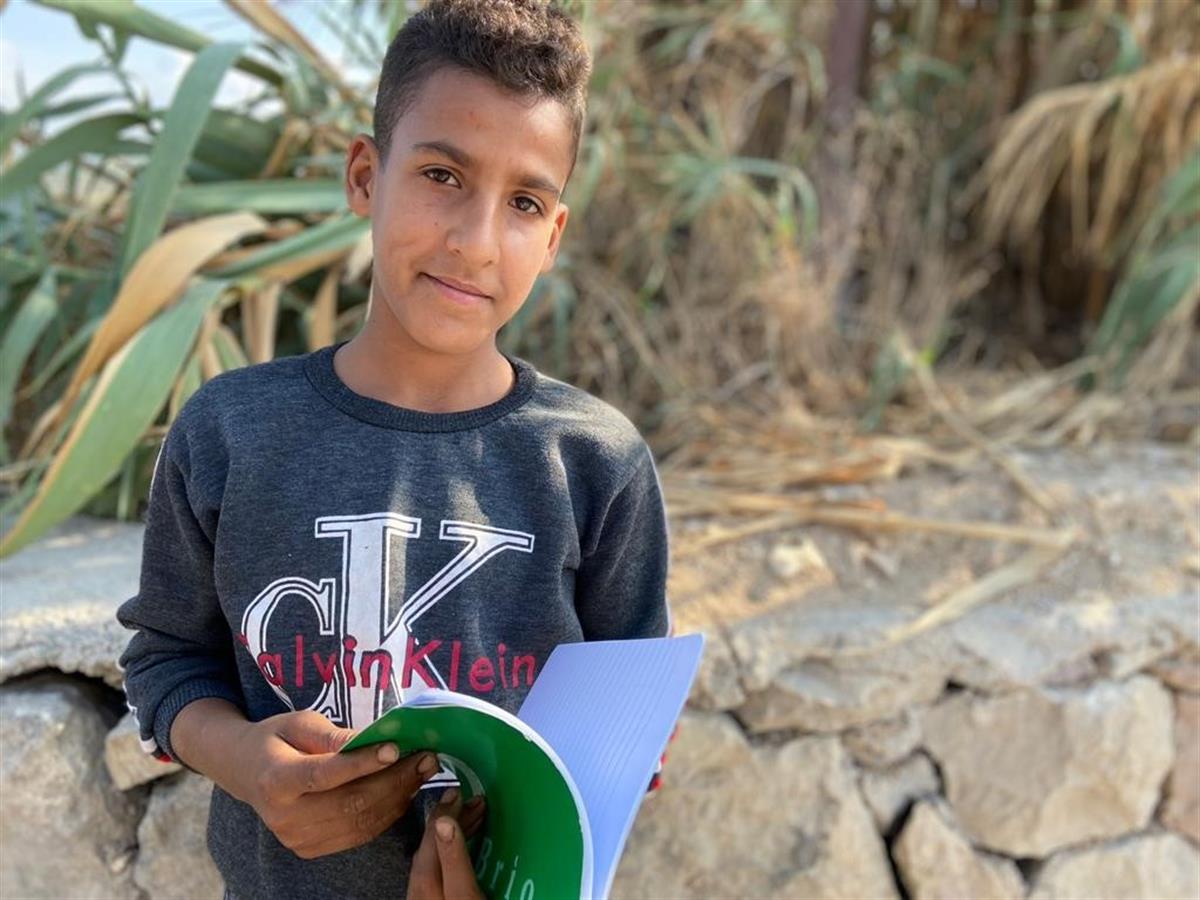Art, in any shape or form, can transform a child’s life.
For Walid, drawing has become an essential coping mechanism on his journey as a Syrian refugee child growing up in hardship.
The 13-year-old proudly shares his sketches and drawings with his English teacher, whom he received lessons from after he recently enrolled as a student in the “Back to the Future” project.
“Through drawing, Walid discovered how to express his emotions with quick and enjoyable practices, having taken Psychosocial Support and Life-skills sessions – and it has changed him completely! I’m grateful to have played a part in adding value to his life” says Rowayda, Walid’s teacher.
Following the death of his father, Walid quit school at an early age and started working in anything he could find just to be able to help provide for his family.

One day, his teacher asked him to express his thoughts on family members, the seasons, his emotions, and anything else he desired, through illustrations.
With consistent practice, Walid unearthed his passion for drawing. He found himself to be quite good in conveying his feelings and emotional-state through illustrations, even that of his siblings’.
When asked to draw, Walid would visualize the sheer happiness and satisfaction he experienced from this activity. Not only does he illustrate, but he also transforms his sketches into a guessing game along with his siblings and has shown a positive shift in his learning experience.
“I feel relaxed and happy every time I’m asked to draw”, says Walid.
He has found the perfect escape to vent and express his emotions through art.
About Back to the Future
Back to the Future is funded by the European Union, through the EU Regional Trust Fund in response to the Syrian crisis, the EU Madad Fund, and implemented in partnership with AVSI, Terre des Hommes Italy in Lebanon, and War Child Holland in Lebanon.